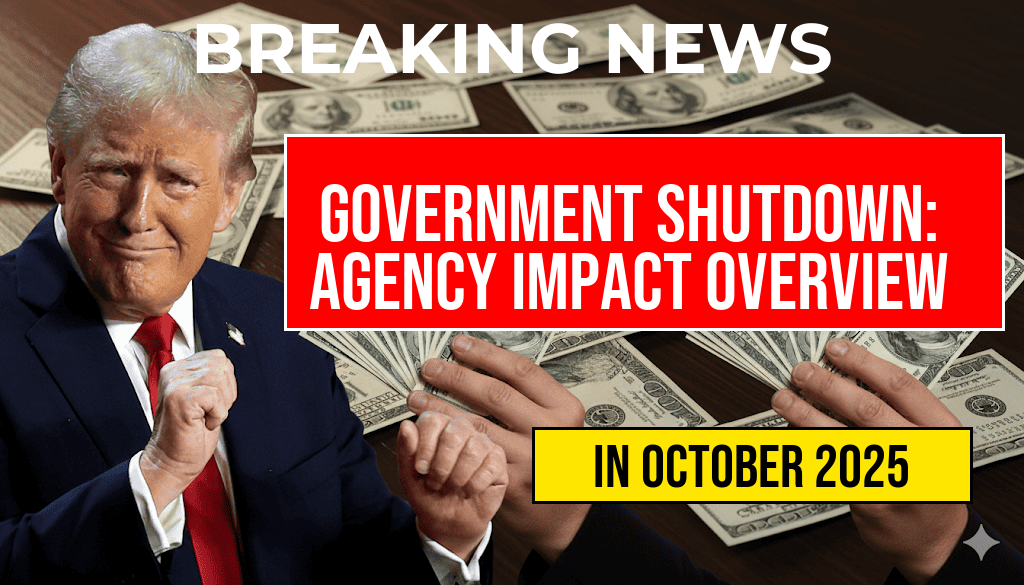The federal government has officially entered a shutdown as of midnight on October 1, 2023, following a failure to reach a budget agreement in Congress. This unprecedented halt in operations affects numerous federal agencies and services, leaving millions of Americans uncertain about the status of critical government functions. Essential services, including Social Security, the IRS, and national defense, will continue to operate, albeit under restrictions, while many non-essential government employees are furloughed. This article provides an in-depth look at which agencies are operational and which are not, offering clarity on the potential impacts of the shutdown on everyday life.
Understanding the Shutdown
A government shutdown occurs when Congress fails to pass legislation to fund government operations. This lack of appropriations results in the temporary halt of various federal services. While essential services may continue, many agencies face significant disruptions, affecting employees and citizens alike.
Agencies and Their Operations
Below is a detailed breakdown of key federal agencies and their operational statuses during the shutdown:
| Agency | Status | Details |
|---|---|---|
| Social Security Administration | Operational | Benefits will continue to be paid, but new applications may see delays. |
| Internal Revenue Service (IRS) | Limited Operations | Tax processing will continue, but non-essential staff are furloughed. |
| Department of Defense | Operational | Military personnel will continue to work, but some civilian employees may be furloughed. |
| Transportation Security Administration (TSA) | Operational | Airport security personnel will remain on duty. |
| Federal Bureau of Investigation (FBI) | Operational | Law enforcement and national security functions will continue. |
| National Park Service | Closed | Parks and recreational areas will close until funding is restored. |
| Department of Housing and Urban Development (HUD) | Limited Operations | Some programs may continue, but many employees will be furloughed. |
Impacts on Citizens
The implications of the government shutdown extend beyond federal employees. Here is how various segments of the population may be affected:
- Social Security Recipients: Payments will continue, providing relief to millions of retirees and disabled individuals.
- Taxpayers: Individuals awaiting tax refunds may experience delays, as the IRS operates with limited staff.
- Travelers: TSA operations will remain intact, minimizing disruptions at airports.
- National Park Visitors: With parks closing, outdoor activities will be curtailed for many families.
What the Future Holds
As the shutdown continues, both sides of the aisle in Congress will need to negotiate to restore operations. The effects of this shutdown could reverberate long after it ends, affecting public trust and governmental efficiency. According to experts, prolonged shutdowns can lead to significant economic ramifications, including reduced consumer confidence and disruptions in federal contracts.
For ongoing updates, citizens can track the situation through reliable sources like Forbes and Wikipedia.
Frequently Asked Questions
What is a government shutdown?
A government shutdown occurs when Congress fails to pass funding legislation for government operations, leading to the temporary closure of federal agencies and services.
Which agencies will continue to operate during the shutdown?
During a shutdown, certain essential agencies, such as Social Security and the Department of Defense, may continue to function, while others like the IRS and TSA may face reduced operations.
How will a government shutdown affect Social Security payments?
Social Security payments are typically unaffected during a shutdown, as they are considered essential services. Recipients should continue to receive their benefits as scheduled.
What impact does a government shutdown have on tax services provided by the IRS?
The IRS may experience significant delays in processing tax returns and issuing refunds during a shutdown, as many employees are furloughed or working with limited resources.
Will airport security services continue to operate during the shutdown?
The TSA is classified as an essential service, so airport security operations will continue, but travelers may experience longer wait times due to staffing shortages.













